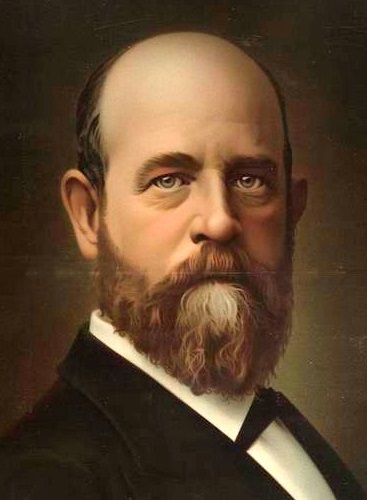 Why Wealth Alone Considered
|
Saving Communities
|
||||||
Home |
Site Map |
Index
|
New Pages |
Contacts |
 |
Henry George
|
Political economy does not include all the exertions for the satisfaction of material desires; but it does include the greater part of them, and it is through value that the exchange of services for services is made -- Its duty and province
Political economy has been defined, and I think sufficiently, as "the science which treats of the nature of wealth and the laws of its production and distribution." The object-noun or subject-matter of political economy is therefore wealth. Now, as we have already seen, wealth is not the only result of human exertion, nor is it indeed the end and aim and final cause of human exertion. That is not reached until wealth is spent or consumed in satisfaction of desire. Wealth itself is in fact only a halting-place or storehouse on the way between prompting desire and final satisfaction; a point at which exertion, journeying towards the satisfaction of desire, remains for a time stored up in concrete form, and from whence it may be called forth to yield the satisfaction which is its ultimate aim. And there are exertions aiming at the satisfaction of desire which do not pass through the form of wealth at all.
Why then should political economy concern itself merely with the production and distribution of wealth? Is not the proper object of the science the production and distribution of human satisfactions, and would not this definition, while including wealth, as material satisfactions through material services, also include services that do not take concrete form?
My answer is that I am not engaged in laying out a new science, but only endeavoring to explain and straighten out one that has been already much pursued. I wish, therefore, as far as possible, to follow old roads and to use accustomed terms, only swerving from them where they clearly lead to error, of which there are indeed instances enough.
And further than this, I think that reflection will show that a consideration of the production and distribution of wealth will include about all that there is any practical use of considering of the production and distribution of satisfactions.
While wealth does not include the sum of all exertions for the satisfaction of material desires, it does include what in a highly civilized society are the far greater part of them, and is, as it were, the exchange point or clearing-house where the transfer of services devoted not to the production of wealth, but to the direct procurement of satisfactions, is made.
Thus the barber, the singer, the physician, the dentist, the actor, do not produce wealth, but direct satisfactions. But not only are their efforts which are expended in this way mainly devoted to the procurement of wealth, which they get in exchange for their services, but any exchange between themselves of services for services takes place through the medium of wealth. That is to say, the actor does not pay his barber in recitations, or the singer pay his physician in tones, nor yet reversely does the barber or physician often pay in shaves or medical advice for the satisfaction of hearing, acting or singing. Each habitually exchanges his services for wealth or the representative of wealth, and exchanges this for other services that he may desire. Thus in civilized society it is only in rare and exceptional cases that there is any direct exchange of services for services. To this we may add that the laws which govern the production and distribution of services are essentially the same as those which govern the production and distribution of wealth. Thus we see that all the ends of political economy may be reached if its inquiry be an inquiry into the nature of wealth and the laws that govern its production and distribution.
Political economy has a duty and a province of its own. It is not and it cannot be the science of everything; for the day in which any one scheme can include the whole province of human knowledge has long passed, and must with the increase of human knowledge further recede. Even today the science of politics, though closely related, is, as I conceive it, clearly distinct from the science of political economy, to say nothing of the almost numberless other schemes which treat of man's relations to other individuals and to the relations with which he is brought in contact.
Saving Communities
420 29th Street
McKeesport, PA 15132
United States
412.OUR.LAND
412.687.5263